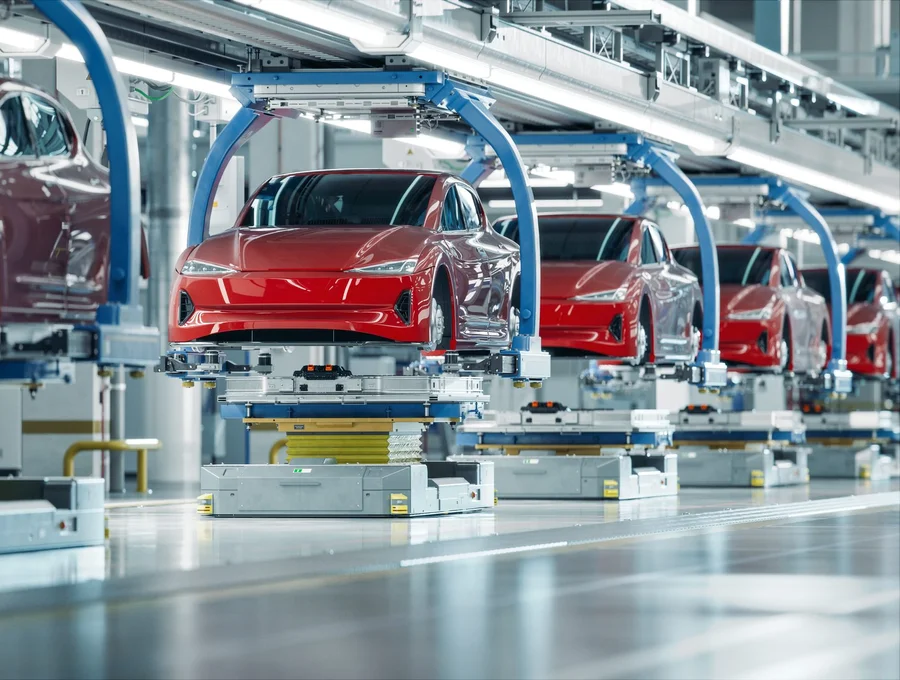2024 marks a pivotal year for EVs, with growth, regulation and debates on incentives as governments navigate the path to a sustainable transition.
What happened in February 2024
As the automotive industry faces rapid shifts in consumer behaviour, technology and sustainability goals, Scott Russell, Executive Board member of SAP, highlighted the need for self-disruption. His message is clear: industries that embrace change today will shape their future while leaving behind those that resist risk.
The rise of online vehicle shopping
According to S&P Global Mobility, in 2023, 65% of U.S. vehicle buyers shopped for cars partially or entirely online. This shift signals a growing preference for convenience and digital-first experiences. Automotive companies are adapting by exploring new ownership models and leveraging technologies like generative AI (Gen AI) to meet these evolving consumer demands.
Generative AI transforming the automotive sector
Generative AI is pivoting in reshaping the automotive landscape. Gen AI enables companies to use data more intelligently and automate time-consuming tasks, from streamlining complex processes to enhancing customer engagement.
“For the auto industry, it’s beginning to improve everything from design and forecasting to manufacturing and production, while also making the customer experience more personal,” Russell explains.
SAP, a leader in enterprise software, is at the forefront of this transformation. Its solutions, such as SAP E-Mobility, integrate cutting-edge technologies to enable more sustainable and efficient operations.
SAP E-mobility: Empowering sustainable transportation
By design, SAP E-Mobility manages large-scale EV charging networks, supporting businesses in transitioning to sustainable electric transportation. The cloud-based solution connects stakeholders, streamlines operations and integrates EV charging into core business activities such as reimbursement.
By offering manufacturers visibility and transparency, SAP’s technologies reduce emissions while meeting customer expectations. The commitment to sustainability aligns with the broader Industry 4.0 movement, which includes intelligent automation and the Industrial Internet of Things (IIoT).
Digital transformation: A catalyst for growth
The automotive sector’s shift toward digital transformation is accelerating. According to Precedence Research, the global market for generative AI in the auto industry is projected to exceed US$2bn by 2032. The rapid growth highlights the urgency for businesses to adopt digital tools.
Russell highlights the importance of integrating digital technologies across all aspects of operations. “Simply put, this means incorporating digital technologies into every aspect of a business’s operations. It allows businesses to seize new growth opportunities faster than they could before and future-proof their operations in new ways.”
By leveraging digital transformation, automotive companies can adapt to market changes while staying competitive.
The bright future of the automotive industry
Despite macroeconomic uncertainties, Russell remains optimistic about the automotive industry’s trajectory. He believes the future belongs to those who prioritize digital transformation in their strategies.
“Despite a lot of macroeconomic uncertainty in the world, I believe the future for the auto industry could not be brighter. It will belong to those who put digital transformation at the centre of their business strategies, fueling unlimited possibilities for growth and success.” – Scott Russell, Executive Board member of SAP.
Seizing the opportunity for disruption
As consumer habits evolve and technologies like Gen AI redefine what’s possible, the automotive industry stands at a crossroads. Companies that embrace disruption as an opportunity—by investing in digital transformation and sustainable solutions—are poised to lead in this dynamic era.
The automotive industry can turn challenges into opportunities through innovative solutions like SAP E-Mobility and adopting Industry 4.0 technologies, driving growth and sustainability in tandem.



